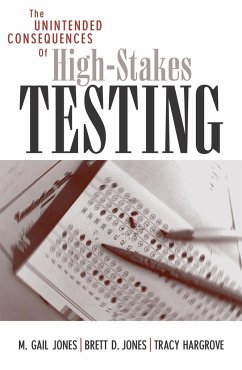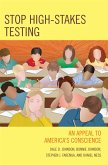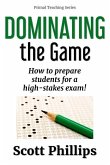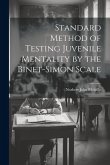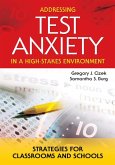To better understand how high-stakes accountability has influenced teaching and learning, this book takes an in-depth look at the myriad consequences that high-stakes tests hold for students, teachers, administrators, and the public. By focusing on these tests and spending large amounts of time on test preparation and driving teachers to teach low-level, rote memorization, schools are essentially wiping out non-tested subjects such as science, social studies, physical education, and the arts. Although testing is promoted as a strategy for improving education for all, research shows that testing has differential effects on students with special needs, minority students, students living in poverty, and those for whom English is a second language. The Unintended Consequences of High Stakes Testing unpacks the assumptions and philosophical foundations on which testing policies are based. The authors' arguments are grounded in extensive interviews and research. Through an examination of research, these authors show that high-stakes testing promotes students' dependence on extrinsic motivation at the cost of intrinsic motivation and the associated love of learning--which has tangible impacts on their education and lives.
Hinweis: Dieser Artikel kann nur an eine deutsche Lieferadresse ausgeliefert werden.
Hinweis: Dieser Artikel kann nur an eine deutsche Lieferadresse ausgeliefert werden.

